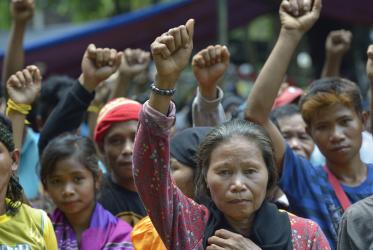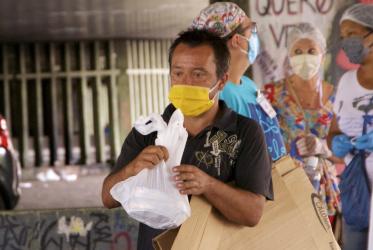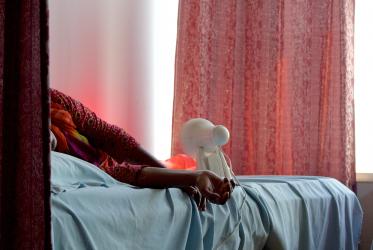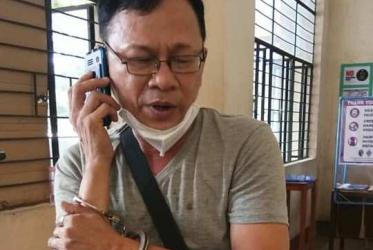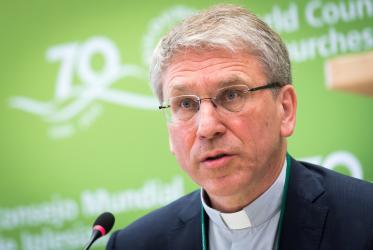Displaying 1 - 20 of 51
17 April 2024
WCC podcast deals with death and dying
15 December 2020
WCC organises event on “The Human Rights Situation in the Philippines”
18 September 2019
WCC condemns massacre of farmers in Philippines
12 April 2019
WCC Eco-School encourages youth to become eco-ambassadors
08 November 2018
#WCC70: A prayer about health and healing
20 July 2018
Voices from Colombia: “What if we have no land to till?”
15 February 2018







